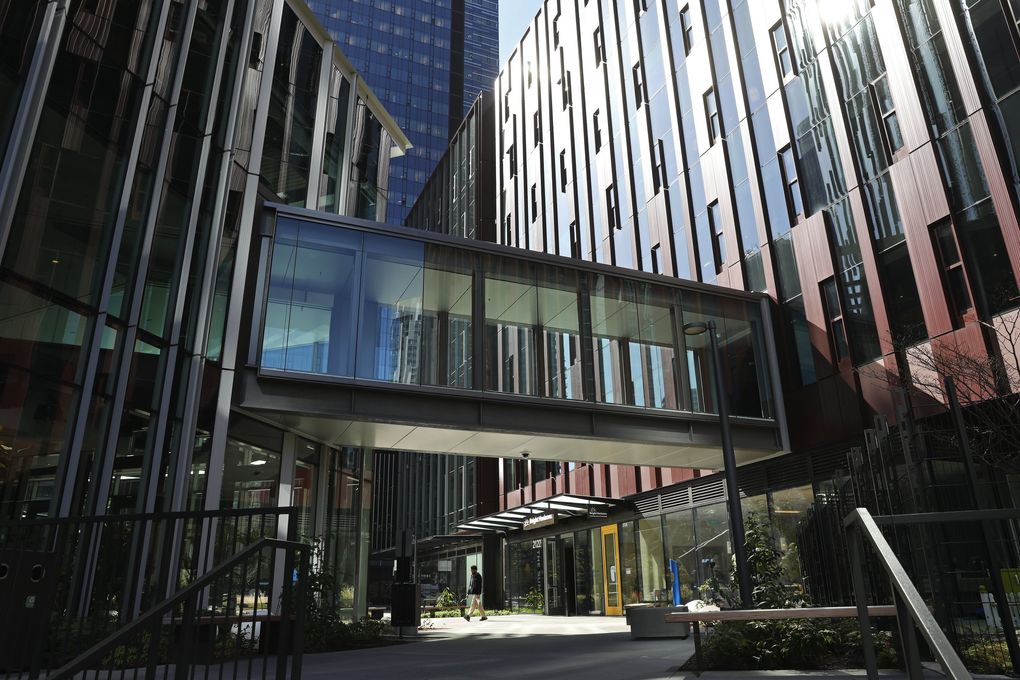Yesterday, as I was on the radio live talking about what God might be saying to us through this coronavirus pandemic, the Seattle Times published a featured, in-depth article titled, "Could The Coronavirus Reset Society?" ---detailing how the Left views the opportunities to "reset" the culture---in Seattle, the state, and the nation.
This is a snapshot of what future news articles and local and national legislation will look like as the Left pushes their agenda, not wanting this crisis to go to waste.
Be informed.
The article begins with this:
Hotel rooms for the homeless. Food-chain and sanitation workers hailed as national heroes. A Republican-led federal government flooding the country with easy money. Governors putting the brakes on evictions. A new national obsession with hand-washing and the finer points of epidemiology.
The coronavirus pandemic has even reduced air pollution in cities across the globe, including Seattle, as cars and trucks stay off the road — though not enough to make a dent in climate-change projections.
Few political analysts, social workers or doctors would have dared such dreams just four months ago.
But life has changed — the twin pressures of the coronavirus pandemic and economy-snarling lockdown have stretched the borders of what we thought was possible.
Which brings big questions: Will any of this stick around? Has this event loosened up parts of our social machinery that, just a few months ago, seemed unchangeable? What decisions are we making now that could have huge reverberations for years, even decades, into the future?
What decisions are we making now that could have huge reverberations for years, even decades, into the future?
Randy Engstrom, director of Seattle's Office of Arts and Culture, says Seattle was the first hit by the virus and will "lead in re-imagining what the new normal might look like."
He says, "Our great ability is to do what we've always done. Which is to invent the future."
Healthcare.
The article and its contributors sound hopeful that because people have been living so long under the government enforced shutdown---a drastically different set of rules, there's a good chance for a real reset.
They believe "the inertia for the old ways of doing things is gone. We get to decide for ourselves now---as a people, as a country---how we want things to be."
No restraint on progressive ideas.
The first "thing" addressed is healthcare.
Aaron Katz, with the University of Washington School of Public Health, cautions the younger progressives, not to become overly optimistic or hopeful, because he thinks there's more work to do before America is ready for nationalized government-run healthcare.
The push for socialized medical care will continue. If Joe Biden would become president, Barack Obama has inserted himself so far into the presidential race at this point, we should expect he will pull Biden's strings, essentially running Oval Office with no accountability or personal consequence.
Mass Surveillance
The big discussion in recent years about data has been: "Who owns it?" "Where should it be stored?"
Blaise Aguera y Arcas, a leading Seattle based thinker about artificial intelligence and privacy with Google, says, "This is a pivotal moment"..."It's a moral imperative to use the technology we've built to save lives..."
These life-saving tools, can, of course, be used for less virtuous purposes.
You will recall that Gov. Inslee is calling for ---his words, "a standing army" to trace people possibly exposed to the coronavirus.
While that may be "moral" in the minds of the far-Left progressives---and saving lives, it becomes immoral when it's used for more nefarious reasons.
Pelosi and radical Democrats are, as we speak, pushing for a bill to spend one hundred billion dollars annually for contact tracing (a.k.a. spying) on "everyone in America." The bill is called "The Trace Act."
Note: One hundred billion dollars "annually." To spy on Americans under the guise of moral obligation to "save lives."
Almost 60 legislators have already cosponsored the 2-page bill. One was a Republican, who has now withdrawn his support.
Another part of the mass surveillance is "Disaggregating data by race."
Andrea Pastor, senior economic adviser for the city of Portland, Ore., says the pandemic has deeply underscored the importance of "tracking outcomes along racial lines."
The black and brown communities have been hit hard by the virus, therefore it would be racist to not take a closer look.
However. Before the words are out of her mouth, she pivots and says, "we have the opportunity right now to track data and course-correct as we go...and seeing the data will make people more aware of the systemic inequities."
She says, "A lot of leadership feels like they have the bully pulpit to make big moves."
There is also concern among many, and I believe rightly so, that following this pandemic, many will continue to work from home. The concern is that this will leave many, perhaps massive amounts of office space vacant---like scenes from the film "Blade Runner." Large empty buildings dripping and floors collapsing in downtown cores nobody wants.
The suggestion is that these "vacant" buildings can become centers and homes for the homeless.
Will this pandemic change our politics?
Of great concern to the so-called progressive Left, is the effect this coronavirus will have on politics.
"The pandemic has changed almost everything about life---and a Harvard historian wonders if it will change politics as well."
The professor wonders if the pandemic will shift voters' attitudes about the small-government movement that has become a dominant force in the Republican Party since the 1970s.
The conclusion is, "We don't know" but we "really, really hope we can reclaim the vision of FDR."
Yesterday, I quoted CS Lewis on the matter of progressivism. If you missed it, he said this:
“We all want progress. But progress means getting nearer to the place where you want to be. And if you have taken a wrong turn then to go forward does not get you any nearer. If you are on the wrong road progress means doing an about-turn and walking back to the right road and in that case the man who turns back soonest is the most progressive man. There is nothing progressive about being pig-headed and refusing to admit a mistake. And I think if you look at the present state of the world it's pretty plain that humanity has been making some big mistakes. We're on the wrong road. And if that is so we must go back. Going back is the quickest way on.”G.K. Chesterton said this:
“This is the age in which thin and theoretic minorities can cover and conquer unconscious and untheoretic majorities.”Be Informed. Be Discerning. Be Bold. Be Prayerful.





